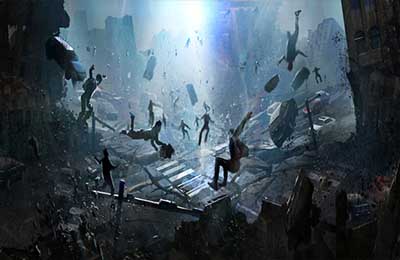旁观灾难,不等于无情
时间:2022-09-18 08:54:27

Stop staring. I bet you heard this more than once growing up. This command, after all, marks the unbridgeable gap between the impulsiveness of the child, who gawks at whatever seizes his attention, and the adult’s social awareness, based on a fear of giving offense.
The auto mechanic has a huge mole on his nose. There’s a woman crying unaccountably2) in the supermarket aisle. The little boy looks and looks, while the mother pulls him away, scolding all the while.
Most children eventually get the point and quit their gaping. For good reason: Although we’re tempted to gaze at the car wreck on the side of the highway, suffering is involved.
But let’s be honest. We’re running late for work. We hit a traffic jam. We creep angrily ahead, inch by inch, until we finally see the source of the slowdown: an accident. As we near the scene, we realize that the highway’s been cleared. The dented cars are on the shoulder3). This is just an onlooker delay, rubberneckers braking to stare.
We silently judge all those seekers of sick thrills—for making us late, for exploiting the misfortune of others. Surely we won’t look, we tell ourselves as we pull beside the crash. Then it comes: the need to stare, like a tickle in the throat before a cough or the awful urge to sneeze. We hold it back until the last minute, then gawk for all we’re worth, enjoying the experience all the more because it’s frowned upon.
Is there a benefit to rubbernecking? Why do we do this? Our list of morbid4) fascinations is longer than we’d like to admit, including disaster footage on the TV news, documentaries featuring animal attacks, sordid5) reality shows, funny falls on YouTube, celebrity scandals, violent movies and television shows, gruesome video games, mixed martial arts6), TMZ7), Gawker8), and the lives of serial killers.
Everyone loves a good train wreck. We are enamored of ruin. Our secret and ecstatic wish: Let it all fall down. Why? Does this macabre9) propensity10) merely reflect humanity’s most lurid tendencies? Or might this grimmer side produce unexpected virtues?
In Killing Monsters: Why Children Need Fantasy, Superheroes, and Make—Believe Violence, Gerard Jones argues that children can benefit from exposure to fictional violence because it makes them feel powerful in a “scary, uncontrollable world.” The child’s fascination with mayhem11) has less to do with the fighting and more to do with how the action makes her feel. Children like to feel strong. Those committing violence are strong. By pretending to be these violent figures, children take on their strength and with it negotiate daily dangers.
